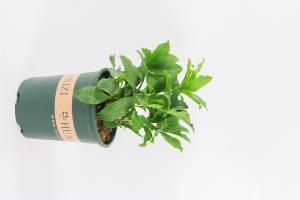Introduction
Tap water has always been a convenient source of water for many people. It allows us to easily access clean water for drinking, cooking, and cleaning. However, have you ever wondered why your plants don't seem to thrive when you water them with tap water? In this article, we will explore the reasons behind this phenomenon.
Chlorine Content
One of the primary reasons why tap water can hurt your plants is due to the presence of chlorine. Chlorine is a common disinfectant that is added to tap water to kill bacteria and other microorganisms. While this may be beneficial for our health and safety, chlorine can be harmful to plants. Too much chlorine can cause the leaves and roots of plants to burn, resulting in wilted, brown, and curled leaves. To reduce the amount of chlorine in tap water, consider using a chlorine filter or alternatively, let the water sit for a day before using it to water your plants. This will allow the chlorine to dissipate naturally over time.
Hard Water Buildup
Another issue with tap water is that it can contain various minerals and salts that can cause hard water buildup. When tap water evaporates, it leaves behind these minerals that can accumulate over time and create a layer of mineral buildup on the soil and the leaves of your plants. This can interfere with the absorption of water and nutrients by the plants, leading to stunted growth and yellowing leaves. To prevent this from happening, consider using rainwater or distilled water to water your plants. If you have no other option but to use tap water, try to flush the soil with fresh, distilled water periodically to remove any accumulated mineral buildup.
Acidic or Alkaline pH
The pH level of tap water can also affect the health of your plants. Tap water can be naturally acidic or alkaline due to its source, and this can be detrimental to certain plants that require a specific pH level to grow. For instance, plants that prefer acidic soil, such as blueberries or rhododendrons, may suffer if they are watered with alkaline tap water. On the other hand, plants that require alkaline soil may not fare well with acidic tap water. To determine the pH level of your tap water, you can purchase a pH testing kit or ask your local water department for a report. If you find that your tap water's pH level is not suitable for your plants, you can adjust it by adding certain amendments to the soil, such as lime or sulfur, or by using a pH balancing solution.
Conclusion
In conclusion, tap water can hurt your plants due to its chlorine content, hard water buildup, and pH level. By being aware of these issues and taking steps to reduce or mitigate their impact, you can help your plants thrive and grow. Consider using a water filter or letting the water sit, using rainwater or distilled water, and adjusting the pH level of the water with amendments or balancing solutions. Doing so will lead to healthier, more vibrant plants in your home or garden.

 how many times do yo...
how many times do yo... how many planted tre...
how many planted tre... how many pine trees ...
how many pine trees ... how many pecan trees...
how many pecan trees... how many plants comp...
how many plants comp... how many plants can ...
how many plants can ... how many plants and ...
how many plants and ... how many pepper plan...
how many pepper plan...































